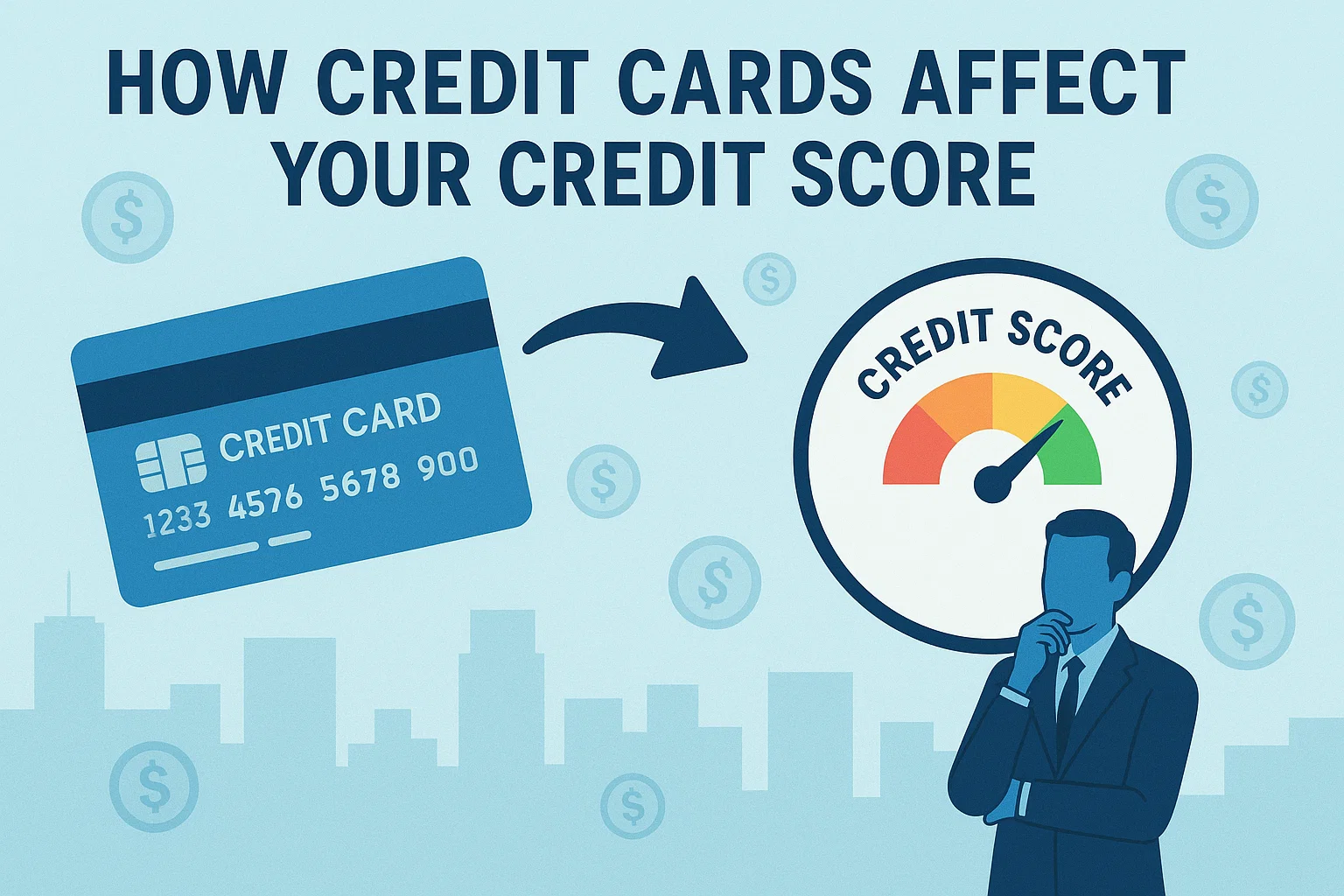Breaking News
Popular News




Enter your email address below and subscribe to our newsletter

In 2025, credit cards are more than a convenience — they’re a key component of your financial identity. But how credit cards affect your credit score depends on how you use them.
In India, credit scores (like CIBIL) range from 300 to 900. A higher score improves your chances of loan approvals, lower interest rates, and premium financial products.
Timely payments = positive impact
Late or missed payments = score drop
Tip: Always pay before due date, even the minimum amount.
This is how much credit you’re using vs your total limit.
Stay under 30% utilization for best results.
Example:
If your limit is ₹1,00,000, keep spending below ₹30,000.
Longer credit history builds trust.
Keep your oldest credit card active, even if unused.
Applying for too many cards = multiple hard inquiries
Too many inquiries = risky profile
Tip: Space out applications.
Having both secured loans (home, auto) and unsecured credit (cards) helps.
More diversity = stronger credit profile.
Maxing out your credit card
Skipping payments
Closing old accounts
Frequently applying for new cards
Ignoring small overdue balances
Pay full bill, not just minimum
Set auto-pay to never miss due dates
Keep utilization below 30%
Monitor your credit report regularly
No, checking your own credit details is a soft inquiry and doesn’t hurt your score.
Yes, especially if it’s your oldest card. It can reduce your credit age and affect your utilization ratio.
Yes, if managed well. Spread expenses across cards to keep utilization low.
Always pay in full to avoid interest and show strong repayment behavior.
Usually 7 years. That’s why consistent on-time payment is critical.
Understanding how credit cards affect your credit score is essential for building strong financial health. Use your cards wisely and consistently to unlock better financial opportunities in 2025 and beyond.
📘 For more financial literacy content, visit 👉 bit2050.com